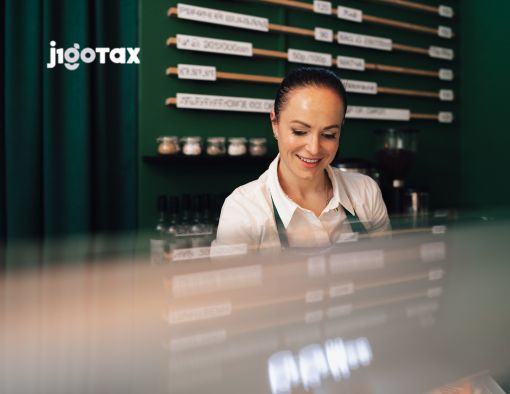Authentic Foods to Try in Texas as a J1 Visa Holder
Texas as a Cultural Gateway for J1 Visa Holders
Texas is more than just a massive state on the U.S. map — it’s a world of its own. For J1 visa holders, Texas often means job opportunities in hospitality, restaurants, and customer service, but beyond work, it represents a chance to experience an authentic slice of American culture. One of the most memorable aspects of that cultural exchange is food.
Known for barbecue, Tex-Mex, and regional specialties, Texas food tells the story of immigration, frontier survival, and innovation. Every dish represents the blend of Mexican, German, African American, and cowboy traditions that shaped the Lone Star State. Exploring Texas cuisine is not only about eating — it’s about connecting with history, people, and the cultural exchange that defines the J1 visa experience.

The Tax Moves Blog

Texas Barbecue: The Heart of Lone Star Cuisine
Barbecue in Texas is more than a meal — it’s a ritual. J1 students who come to Texas quickly realize that locals take their barbecue very seriously. From small-town smokehouses to big-city barbecue competitions, smoked meats are everywhere.
Brisket as the King of Texas BBQ
The centerpiece of Texas barbecue is beef brisket, slow-cooked for hours over oak or mesquite wood until it becomes tender and flavorful. Served with pickles, onions, and white bread, brisket is a dish every J1 participant in Texas must try.
Regional Variations in Barbecue
Texas is so large that barbecue styles vary by region:
-
Central Texas: Salt-and-pepper rubs, smoked with post oak, emphasizing natural meat flavor.
-
East Texas: Saucy and chopped, influenced by African American traditions.
-
South Texas: Barbacoa and cabrito (goat), rooted in Mexican culinary culture.
-
West Texas: Cooked directly over mesquite flames, reflecting frontier cooking.
For J1 visa holders, these regional flavors offer a lesson in diversity — how a single food tradition can evolve in many directions.
Tex-Mex: A Culinary Bridge Between Cultures
Tex-Mex cuisine is perhaps the best example of cultural exchange, making it especially relevant for J1 students. Born along the Texas-Mexico border, it blends Mexican traditions with American tastes.
Classic Tex-Mex Dishes to Try
-
Fajitas: Grilled meat served with tortillas, guacamole, and salsa.
-
Queso Dip: Melted cheese sauce often enjoyed with tortilla chips.
-
Enchiladas with Chili Con Carne: Corn tortillas rolled around meat and topped with chili sauce.
Tex-Mex shows how two cultures can coexist and innovate together — exactly what the J1 program encourages in its exchange goals.
German and Czech Influences: Sausages and Kolaches
Many Texans are descendants of German and Czech immigrants who brought their culinary traditions with them. J1 workers in central Texas towns often discover foods like:
-
Kolaches: Sweet or savory pastries filled with fruit, cheese, or sausage.
-
Smoked Sausages: A staple of German-Texan communities, often found at local festivals.
For J1 students, trying these dishes highlights the multicultural layers of Texas identity.
Southern Comfort: Fried Chicken and Pecan Pie
Texas also shares the traditions of the American South. Fried chicken, biscuits with gravy, and pecan pie are popular dishes across the state. J1 visa holders working in hospitality often serve these classics to guests, gaining firsthand exposure to traditional American comfort food.
Texas as a Hub for J1 Visa Opportunities
Food is only part of the story. Texas also provides countless opportunities for J1 students to learn and grow:
-
Hospitality Jobs From Houston’s restaurants to Austin’s music festivals, J1 workers find jobs in dynamic industries.
-
Cultural Diversity Texas is a melting pot where students meet people from Latin America, Asia, and Europe.
-
Affordable Living Compared to states like California or New York, Texas often provides lower living costs, making it easier for students to save money.
Experiencing Texas through work and food deepens the cultural exchange at the core of the J1 program.
J1 Visa Taxes in Texas What You Need to Know
Many J1 visa holders assume that because Texas has no state income tax, they don’t need to file taxes. This is a serious mistake.
-
Federal Taxes: J1 workers in Texas must file a federal return with the IRS. Depending on your status, you will use either Form 1040-NR or Form 1040 if you meet the substantial presence test.
-
Wrong Filings: Using the wrong form can delay your refund or trigger IRS inquiries.
-
Refund Opportunities: Many J1 students have taxes withheld from their paychecks and don’t realize they qualify for a refund. Filing correctly could return hundreds of dollars.
-
Avoid USCIS Confusion: Taxes are filed with the IRS, not USCIS. Sending documents to the wrong agency can cause stress and delays.
This is why professional assistance is crucial. Taxes may seem intimidating, but they are a required part of working in the U.S. under a J1 visa.

J1 Go Tax — Your Partner in Texas
Living and working in Texas is a unique opportunity for J1 visa holders. From smoky brisket and Tex-Mex flavors to Southern comfort food and immigrant traditions, Texas cuisine is a cultural journey. Pair that with affordable living and diverse job opportunities, and you have one of the best states for a J1 experience.
When tax season arrives, don’t risk losing money or filing incorrectly. At J1 Go Tax, we specialize only in J1 W-2 holders. Our promise is simple: No refund = No fee. That means you only pay if you get results.
With J1 Go Tax, you can focus on enjoying Texas while we handle your taxes.
Core Guides & Calculators
1. Learn everything about J1 visa taxes — our complete 2026 step-by-step guide for nonresident workers with W-2 income.
2. Estimate your refund instantly with our J1 visa tax calculator — no signup required.
3. Compare Form 1040 vs 1040NR for J1 visa holders and find out which one applies to you.
4. Understand the importance of your DS-2019 form — it defines your program, tax status, and eligibility.
Forms & Tax Documents
5. Did you receive a 1099 instead of a W-2? Here’s what to do — Form 1099 for J1 visa workers explained.
6. Learn how to apply for your SSN or ITIN as a J1 visa holder before filing your taxes.
7. Understand your IRS transcripts for J1 visa taxes — what they show and how to request them.
8. Received a Form 1042-S? Discover what it means and how to include it in your tax return.
9. Find your Form W-2 for J1 visa — and learn what each box means when you file.
10. File correctly using the official Form 1040NR for J1 visa holders — step-by-step.
11. Don’t forget your Form 8843 — it’s mandatory even if you had no income.
12. Check this J1 visa tax return example using Form 1040NR to understand how everything fits together.
Special Cases & IRS Resources
13. Missed the April deadline? Learn how to file J1 visa taxes after April and still get your refund.
14. Review official IRS guidance on Taxation of J-1 visa holders and resident status.
You may also like
Do J-1 Visa Holders Pay State Taxes? A State-by-State overview
Do J-1 Visa Holders Pay State Taxes?Yes. J-1 visa holders generally must pay federal and state income tax on U.S.-source income. State rules differ: some tax any income earned in the state (nonresident sourcing), some tax residents on worldwide income, and a few states have no personal income tax at…
Substantial Presence Test for J-1 Visa Taxes – 1040NR or 1040 Explained
Substantial Presence Test for J-1 Visa Taxes: Resident vs Nonresident StatusThe Substantial Presence Test J-1 Visa Taxes is the IRS rule that determines whether a J-1 visa holder is classified as a nonresident alien or resident alien for U.S. tax purposes.This classification directly affects which tax form you must file…
J-1 Visa Taxes in Orlando – Guide for W-2 Workers Only
J-1 Visa Taxes in Orlando: What You Should KnowOrlando, Florida, hosts thousands of J-1 exchange visitors with Form W-2 income only, especially through programs connected to theme parks, hospitality, tourism, hotels, restaurants, retail, and cultural exchange organizations across Central Florida. Most employers in Orlando pay J-1 workers through standard W-2…
IRS Announces First Day of 2026 Tax Season – Filing Dates & Tools
IRS Announces First Day of the 2026 Tax SeasonThe Internal Revenue Service (IRS) has officially announced that January 26, 2026 will be the first day of the 2026 tax filing season. Starting on this date, the IRS will begin accepting federal tax returns for the 2025 tax year. This announcement…
J-1 Visa Taxes in South Bay – Guide for W-2 Workers Only
J-1 Visa Taxes in South Bay: What You Should KnowSouth Bay, including areas such as Torrance, Redondo Beach, Manhattan Beach, Hermosa Beach, Hawthorne, and El Segundo, hosts many J-1 exchange visitors with Form W-2 income only. Participants commonly work in hospitality, tourism, aviation, technology support, universities, retail, and service industries…
J-1 Visa Taxes in Long Beach – Guide for W-2 Workers Only
J-1 Visa Taxes in Long Beach: What You Should KnowLong Beach, California, hosts thousands of J-1 exchange visitors with Form W-2 income only, particularly through programs connected to ports and logistics, hospitality, tourism, universities, healthcare facilities, retail, and service industries across Los Angeles County. Most employers in Long Beach pay…
J-1 Visa Taxes Central Valley – W-2 Workers Only
J-1 Visa Taxes in Central Valley: What You Should KnowCalifornia’s Central Valley is home to a large number of J-1 exchange visitors with Form W-2 income only. Each year, non-resident workers are employed across agriculture support services, food processing, logistics, hospitality, education programs, healthcare assistance, and seasonal operations in cities…
J-1 Visa Taxes in Fresno – Guide for W-2 Workers Only
J-1 Visa Taxes in Fresno: What You Should KnowFresno and California’s Central Valley host a significant number of J-1 exchange visitors with Form W-2 income only each year. Participants work mainly in agriculture support services, food processing, hospitality, education programs, healthcare assistance, cultural exchange roles, and seasonal employment across Fresno…
J-1 Visa Taxes in Ventura, CA: What You Should Know
J-1 Visa Taxes in Ventura: What You Should KnowVentura and the surrounding coastal areas host a steady population of J-1 exchange visitors with Form W-2 income only each year. Participants are employed mainly in hospitality, coastal tourism, restaurants, seasonal services, agriculture support roles, cultural exchange programs, and education-related employers across…
J-1 Visa Taxes in Santa Bárbara – Guide for W-2 Workers Only
J-1 Visa Taxes in Santa Bárbara: What You Should KnowSanta Bárbara and the Central Coast welcome thousands of J-1 exchange visitors employed by beach resorts, university programs, seasonal tourism businesses, and healthcare training centers with Form W-2 income only each year. Most employers in Santa Bárbara pay J-1 participants through…









